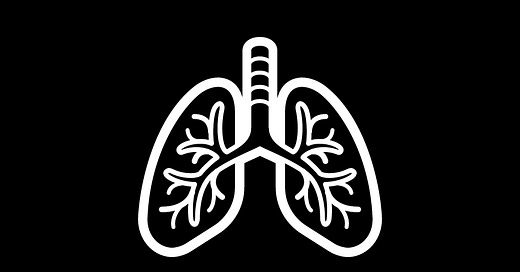One of the most interesting (and expected) side effects of the pandemic has been the disruption of the normal patterns of respiratory pathogens. In the UK we first saw unseasonal outbreaks of RSV and other respiratory viruses, which have since seemed to settle back into their usual patterns over winter (see my initial post about this phenomenon here).
Why are all the kids sick in summer?
My recent shift in the children’s emergency department was bizarre. It is the start of summer and most children I saw that day were unwell with complaints we only normally see during winter, such as bronchiolitis, coughs and colds, and a fresh wave of vomiting illnesses. My colleagues around the country are experiencing the same thing, and reports from …
So what of the news of new outbreaks of Pneumonia in China and across Europe?
What is going on
Alarm bells started ringing when the infectious disease notification system ProMED sent out an alert about an unidentified respiratory infection outbreak in children in China. The concern being that this could herald the start of a new pandemic with a novel pathogen.
Chinese authorities subsequently informed the WHO that this outbreak was a combination of a large number of the usual respiratory viruses which had been suppressed during the pandemic and were now re-emerging, much like had already happened in other parts of the world which had re-opened their societies sooner.
In addition, they were experiencing a large wave of infection with a respiratory bacteria known as Mycoplasma pneumoniae.
Subsequently, we have seen that there are now large epidemic waves of M pneumoniae occurring in other countries such as France and Denmark. Prior to the description of the respiratory infection outbreak in China, there had already been documented a new resurgence of M penumoniae (with an excellent editorial published in The Lancet Microbe).
Mycoplasma pneumoniae
M pneumoniae is a strange thing. It is an intracellular bacteria which causes epidemics in cyclical fashion that occur every 4 years or so. It mainly causes respiratory infections in young children (5 and below) with a very mild illness, although can have impressive appearance on chest x-ray (there has been a lot in the press about calling it “walking pneumonia” for this reason, although I have never heard this term used before).
Infection with M pneumoniae is so mild that the antibiotic treatment routinely used for pneumonia in the UK does not treat it. It is targeted at the bacteria Streptococcus pneumoniae, the most common cause of bacterial pneumonia which is sensitive to penicillins like Amoxicillin. The type of antibiotic we use to treat M pneumoniae would only be used in cases of very severe pneumonia, to cover for the rare event that it was causing severe illness (and there is some debate about whether it is routinely necessary even then).
Paediatricians don’t tend to be too concerned about pneumonia caused by M pneumoniae. We tend to be more interested in the non-infectious complications which are largely caused by the immune response to it. This includes encephalitis, Guillan-Barre syndrome, skin rashes, joint problems, blood clotting problems and a host of other strange conditions. These are all very rare.
The reason we are seeing large outbreaks of M penumoniae now is likely the same reason we have seen larger than usual outbreaks of other respiratory pathogens since the end of the pandemic. A longer than usual period between outbreaks (some scientists even wondered whether it was gone forever!) has left the population with reduced immunity through exposure, so more people are more readily infected. It is possible that the disruption of other respiratory pathogens which usually interact with M pneumoniae also impacted the timing of its return. In addition, it could be that in the usual timing of circulation of M pneumoniae, many places were simply due an epidemic wave around now anyway.
Summary
China is experiencing a resurgence in a number of respiratory pathogens which had been suppressed during the pandemic. China and elsewhere around the world are seeing the re-emergence of M pneumoniae infections in children, which tend to be mild. Advice for looking after your children this winter remains the same, with good respiratory hygiene and getting the flu vaccine (a nasal spray - no needles!) when offered. Antibiotics will not help improve the symptoms of most respiratory infections in children.







Thanks for your usual calm response 👍
Very reassuring Ally. Thanks.